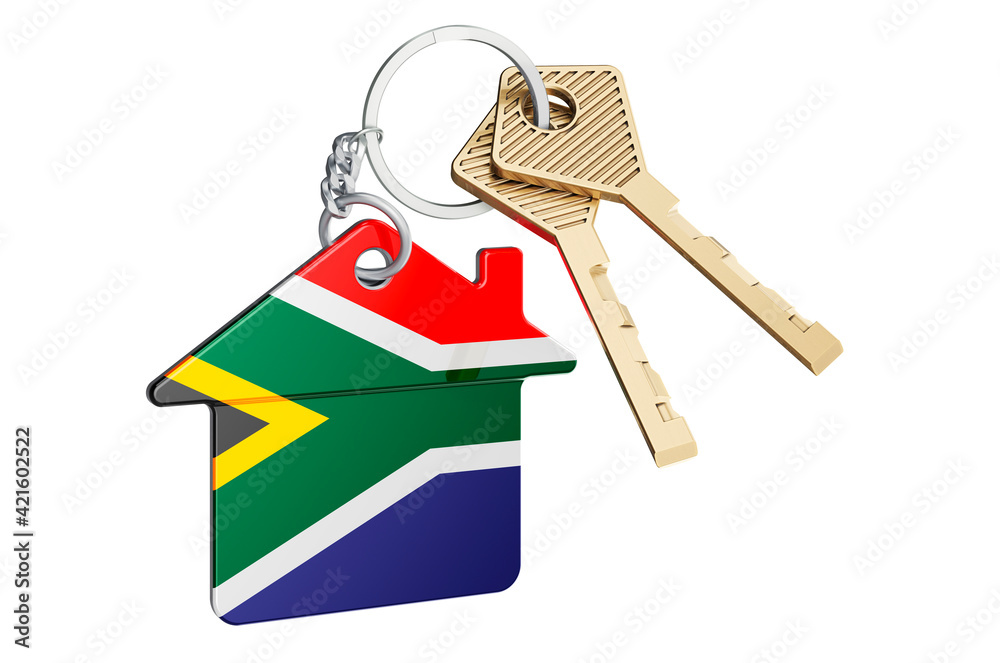- 1. Understanding the South African Property Market
- 2. Step 1: Assess Your Financial Readiness
- 3. Step 2: Get Pre-Approved for a Mortgage
- 4. Step 3: Engage a Real Estate Agent
- 5. Step 4: Start House Hunting
- 6. Step 5: Make an Offer
- 7. Step 6: Conduct a Property Inspection
- 8. Step 7: Finalize Your Mortgage
- 9. Step 8: Transfer Ownership
- 10. Step 9: Move In and Enjoy Your New Home
- 11. Frequently Asked Questions
Step-by-Step Guide to Buying Your First Home in South Africa

Purchasing your first home is an exhilarating milestone, but it can also be a daunting task, especially in a diverse and vibrant market like South Africa. This guide will walk you through the essential steps involved in buying your first home, ensuring that you make informed decisions along the way.
Understanding the South African Property Market
The South African property market has undergone significant changes in recent years, influenced by economic factors, interest rates, and government policies. As a prospective buyer, understanding the current market is crucial. According to South African Property, the market has seen a steady increase in demand for residential properties, particularly in urban areas like Cape Town, Johannesburg, and Durban.
Before diving into the buying process, consider these key factors:
- Location: Research areas that suit your lifestyle and budget. Proximity to work, schools, and amenities can greatly affect your quality of life.
- Market Trends: Keep an eye on property prices in your desired area. Websites like Property24 provide valuable insights into property trends.
- Type of Property: Decide whether you’re interested in a free-standing home, townhouse, or apartment, as this will influence your budget and lifestyle.
Step 1: Assess Your Financial Readiness
Before you begin searching for a home, assess your financial situation. Here are some important aspects to consider:
- Credit Score: A good credit score is essential for securing a mortgage. Obtain your credit report from agencies like Experian or TransUnion.
- Budgeting: Determine how much you can afford, taking into account your monthly income, expenses, and potential mortgage repayments. A general rule is that your monthly home loan payment should not exceed 30% of your gross monthly income.
- Saving for a Deposit: Aim to save at least 10%-20% of your home’s purchase price for a deposit. This can significantly lower your monthly repayments and increase your chances of mortgage approval.
Step 2: Get Pre-Approved for a Mortgage
Once you’ve assessed your finances, the next step is to get pre-approved for a mortgage. This process involves a lender evaluating your financial situation to determine how much they are willing to lend you. Pre-approval provides a clear understanding of your budget and strengthens your position when making an offer on a property.
When seeking pre-approval, consider these lenders:
- Traditional Banks: Institutions like Standard Bank and Absa offer competitive mortgage options.
- Online Lenders: Explore online mortgage services like ooba for a broader range of options.
Step 3: Engage a Real Estate Agent
A reputable real estate agent can be invaluable in your home-buying journey. They possess in-depth knowledge of the local market and can guide you through the buying process. Look for agents with good reviews and a solid track record. The Real Estate Business Owners of South Africa (REBOSA) is an excellent resource for finding qualified agents.
Step 4: Start House Hunting
With your budget and agent in place, it’s time to start house hunting. Here are some tips to help streamline your search:
- Create a Wishlist: List your must-haves and deal-breakers, such as the number of bedrooms, garden space, or security features.
- Attend Open Houses: Visit properties during open house events to get a feel for the home and the neighborhood.
- Utilize Online Platforms: Websites like Private Property and Property24 allow you to filter searches based on your criteria.
Step 5: Make an Offer
Once you find a property that meets your needs, it’s time to make an offer. Your real estate agent will assist you in drafting a formal offer to purchase. This document outlines the terms of the sale, including the purchase price and any conditions (such as subject to financing or inspections).
Negotiation is common in the South African property market, so be prepared for counter-offers. It’s advisable to remain flexible and open to discussions during this phase.
Step 6: Conduct a Property Inspection
Before finalizing the purchase, conduct a thorough inspection of the property. This is crucial to identify any potential issues that could affect the property’s value or your living experience. Engage a professional home inspector for a comprehensive evaluation.
Common issues to look out for include:
- Structural integrity
- Electrical and plumbing systems
- Pest infestations
Step 7: Finalize Your Mortgage
Once your offer is accepted and the inspection is satisfactory, you’ll need to finalize your mortgage. This involves providing your lender with the necessary documentation, including:
- Proof of income (payslips, tax returns)
- Bank statements
- The signed offer to purchase
Your lender will then conduct their own valuation of the property, which may result in adjustments to the loan amount based on their assessment.
Step 8: Transfer Ownership
The transfer of property ownership in South Africa is managed by a conveyancer, a specialized attorney who handles the legal aspects of property transactions. Once your mortgage is approved and all conditions have been met, the conveyancer will:
- Prepare the transfer documents
- Register the property in your name with the Deeds Office
- Ensure that all municipal rates and taxes are settled
This process usually takes a few weeks, depending on various factors, including the efficiency of the Deeds Office.
Step 9: Move In and Enjoy Your New Home
After the transfer is complete, you will receive the keys to your new home! This is the moment to celebrate your accomplishment. However, before moving in, consider the following:
- Home Insurance: Protect your investment by obtaining comprehensive home insurance.
- Utilities Setup: Ensure that all essential services (electricity, water, internet) are set up before moving in.
Frequently Asked Questions
- What costs should I expect when buying a home? In addition to the purchase price, consider transfer duties, legal fees, home inspection costs, and ongoing maintenance expenses.
- Can I buy a home with bad credit? While it may be challenging, some lenders offer options for individuals with lower credit scores. It’s advisable to improve your credit score before applying for a mortgage.
- What is the role of a conveyancer? A conveyancer is responsible for managing the legal aspects of the property transfer, ensuring that all documentation is correctly processed and registered.
By following these steps and being well-informed throughout the process, you can confidently navigate the journey of buying your first home in South Africa. Happy house hunting!
https://images.pexels.com/photos/7235907/pexels-photo-7235907.jpeg?auto=compress&cs=tinysrgb&h=650&w=940

